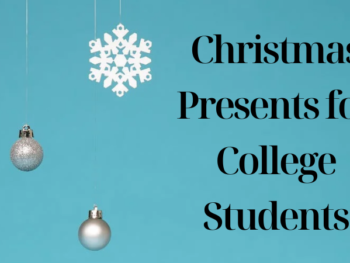A college essay is an essential manual for following so the construction of the paper bodes well. In any event, when understudies are worried about what should a school article be around, a framework helps the cycle. Recorded as a hard copy of a school affirmations article, it is significant that all musings and thoughts are introduced consistently. Without that rationale, it is conceivable that those in confirmations won’t see the benefit of having the understudy at their college. Seeing how to write a college essay is simply the start of introducing an understudy’s best self.
Table of Contents
What are the means for making an essay layout?
Uplifting news: it’s not extremely hard to assemble a blueprint for an article. Here are the essential advances you ought to follow:
1. Conceptualize and Select a Topic
Start by posting the entirety of the points you’re thinking about. Try not to pass judgment on the subjects you’re composing; simply get however many of your contemplations on paper as could be expected under the circumstances. Set a clock for five minutes and rundown each point that flies into your head.
Whenever you’ve made a top-notch, search for points that seem like the best fit for you and the task you’ve been given. Perhaps a couple of themes could even be joined to make one bigger, more created subject.
2. Conceptualize some Supporting Details
Whenever you’ve picked your theme, it’s an ideal opportunity to check whether you have sufficient subtleties to help this subject. An ordinary web of thoughts can help you perceive how your considerations are associated with your fundamental thought.
Compose your point on a page and circle it. Draw lines and circles out to thoughts that help this principle subject. Once more, don’t pass judgment on your musings; just let them stream. You can limit them down later. For the time being, you need to check whether this subject is sufficiently substantial to stay with and on the off chance that you can relate a few plans to the fundamental point.
Essential Parts of an Essay
Put them all into your article layout:
Presentation
Here you’ll specify the subject of your exposition and its theory. As you most likely are aware, papers can’t survive without a postulation; in this way, a theory proclamation in your layout will help you uphold it in each section of your exposition body.
Body sections
There will be a base of three sections in your paper’s body, so make a point to remember everyone for the framework. For each section, record a subject sentence with a contention identifying with your postulation and notice all the help: information, realities, models, and other proof you’ll use to demonstrate the point sentence of this passage.
Formulate the article
Whenever you’re happy with your article in layout, begin composing!
At this point, you know precisely what you’ll expound on and how you need to recount the story. So bounce on a PC and get to it. Attempt to simply allow yourself to blast out an unfinished copy without returning to transform anything. At that point return and reexamine, modify, amend. Before you know it, you’ll have recounted the story you illustrated—and will have arrived at the vital word tally—and you’ll be upbeat you invested all that energy getting ready!
Maintain your exposition’s center tight and individual. Try not to lose your peruser. Start with your principal thought and follow it from start to finish.
Be explicit
Try not to utilize threadbare, unsurprising, or conventional expressions by building up your principle thought with clear and point-by-point realities, occasions, citations, models, and reasons.
Be yourself
Officials read a lot of utilization papers and know the distinction between an understudy’s unique story and a reused scholastic article, or—more terrible—a piece composed by your mother or father or even copied. Bring something new to the table, not exactly what you think they need to hear. Use humor if fitting.
Edit and Proofread
The last advance is altering and editing your completed paper.
You’ve buckled down up until this point, and keeping in mind that you may be assuaged, recall: your article is just comparable to your altering. Syntactic blunders or errors could demonstrate a lack of regard—not an attribute you need to pass on to a school confirmation official.
Give yourself some time. Allow your article to sit for some time (in any event an hour or two) preceding you edit it. Moving toward the exposition with a new point of view allows your brain to zero in on the real words instead of seeing what you think you composed.
Try not to depend entirely on the PC spelling and language structure check. PCs can’t identify the setting wherein you’re utilizing words, so make certain to audit cautiously. Try not to condense or utilize abbreviations or slang. They may be fine in an instant message, yet not in your school paper.
Let someone else read your article, regardless of whether it’s an instructor, direction advocate, parent, or confided in a companion. You understand what you intended to say, however, is it clear to another person pursuing your work? Have these individuals audit your application article to ensure your message is on track and clear to any crowd.
Peruse your article in reverse
This may sound somewhat senseless, however, when perusing successive requests, your cerebrum tends to bits together missing data, or fill in the spaces for you. Perusing each sentence all alone and in reverse can assist you with acknowledging grammatical errors and slip-ups in language structure as well as any failure to remember articles, for example, “a” or “the.”
Recite your article for all to hear
This powers you to peruse each word independently and expands your odds of finding a grammatical mistake. Perusing resoundingly will likewise assist you with guaranteeing your accentuation is right, and it’s regularly simpler to hear abnormal sentences than see them.
Check for consistency
Try not to switch to and fro from various tenses. Likewise, on the off chance that you allude to a specific school in the article, ensure it is the right name and is reliable all through the piece. You would prefer not to reference two unique schools in a similar paper!
Conclusion
Wrap up your article here. Repeat your theory and sum up the objective of your paper.









 Why Study in Switzerland?
Why Study in Switzerland?